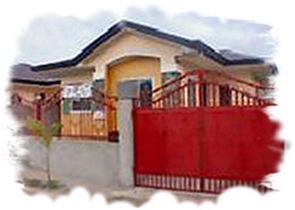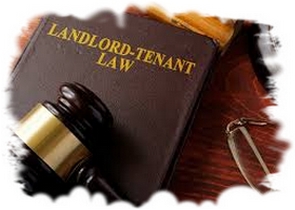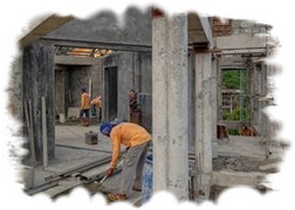Housing in the Philippines
Living on the islands is a blessing, finding the right home is too
The Philippines has become a popular destination for individuals from all corners of the world, drawn to its stunning shores and captivating charm. Many visitors are so enamored by the country's beauty that they choose to make it their permanent residence. The Philippine Islands boast a thriving community of expatriates who are attracted to the affordable cost of living, tropical climate, picturesque beaches, friendly and welcoming locals. While some expats prefer to rent their accommodations, others find that investing in a condo property may be a more financially prudent decision when wanting to live in the city. For those who are married to a Filipino and have families, purchasing a house and lot can provide a sense of security in the face of unforeseen circumstances. However, it is important to note that foreigners are not allowed to own land in the Philippines. It must be placed in your Filipino spouses name. Nevertheless, you can legally own the residence built on the land if you can provide evidence of purchasing the necessary materials for construction (keeping receipts is crucial). In the following sections, we will delve into the various options available for property ownership and renting in the Philippines, as well as the laws that govern these transactions.
Renting
The rental market for properties in this the Philippines is robust and offers a variety of options for those seeking interior or beach-side rentals. Contrary to popular belief, beach-side property rentals are not necessarily expensive and can be within reach for most individuals with a little searching. In fact, renting a nice seaside property can many times be more affordable than renting an apartment in Manila. For expats looking to rent, the process is generally straightforward, but there are a few important considerations to keep in mind. Many house rentals require leases or contracts, with rent typically paid on a monthly or quarterly basis. Landlords often request first and last month's rent, as well as a deposit. One aspect of renting that can be particularly noteworthy is the issue of deposits. In some cases, landlords may require two or even three months' worth of deposit, which may not be returned at the end of the rental or lease term. This common practice has been a source of frustration for many expats, who have reported difficulties in getting their deposits money back, even after leaving the property in excellent condition. Rental prices in the Philippines are typically determined by the size of the property, measured in square meters and location. The Rent Control Act Law limits annual rent increases to 7% as long as the property is occupied by the same tenant. Additionally, rent is typically due within the first five days of the month, unless otherwise specified in a written contract.
For expats looking to rent, the process is generally straightforward, but there are a few important considerations to keep in mind. Many house rentals require leases or contracts, with rent typically paid on a monthly or quarterly basis. Landlords often request first and last month's rent, as well as a deposit. One aspect of renting that can be particularly noteworthy is the issue of deposits. In some cases, landlords may require two or even three months' worth of deposit, which may not be returned at the end of the rental or lease term. This common practice has been a source of frustration for many expats, who have reported difficulties in getting their deposits money back, even after leaving the property in excellent condition. Rental prices in the Philippines are typically determined by the size of the property, measured in square meters and location. The Rent Control Act Law limits annual rent increases to 7% as long as the property is occupied by the same tenant. Additionally, rent is typically due within the first five days of the month, unless otherwise specified in a written contract.
Being removed from a residence
Being asked to leave a residence that you are renting can be daunting and though it is not common here, I will present it for those that may need to know the law.  There are three hard rules for ejecting someone from the home they are renting. These are the only circumstances that can be used to remove someone from a rental property.
There are three hard rules for ejecting someone from the home they are renting. These are the only circumstances that can be used to remove someone from a rental property.
- The tenant has been found to be subleasing the property without the written consent of the property owner.
- The tenant has gone three months or more in arrears with rental payments.
- A legitimate need of the landlord to use his property for the use of his relatives.
- (In the third rule, the landlord must give the tenant three months notice and it must be in writing.)
Due to the plethora of available properties, renting an apartment or house in the Philippines is a relatively simple task. I have personally rented a cozy two-bedroom house for less than $70 a month, as well as a spacious five-bedroom western-style bungalow for $225. These properties are located outside the National Capital Region, where rental prices tend to be more affordable. However, as one moves closer to Manila, rental costs increase significantly. In the heart of Manila, rents can rival those of western countries. Therefore, if one desires to reside in the bustling metropolis, it is important to be financially prepared for higher rental expenses.
Owning
As previously mentioned, foreigners are allowed to legally own houses and other types of buildings in the Philippines, but they are not permitted to own the land on which the property is situated. To navigate this restriction, one option is to purchase or construct a freestanding house and lease the land it sits on.  According to Philippine law, land can be leased to a foreign individual or a foreign-owned corporation for an initial 99 year term, with the possibility of renewal for additional 25-year periods after the initial term expires. Another option for foreigners is to lease a lot while simultaneously owning the house and any improvements made on the leased land. Additionally, foreigners can acquire property through a corporation, as long as at least 60% of the corporation is owned by a Filipino citizen. If a foreigner is married to a Filipino, the property can be purchased in the Filipino spouse's name, with the foreign spouse's name included in the purchase contract. In the event of legal separation or the passing of the Filipino spouse, the land cannot be transferred to the foreign spouse due to the prohibition on land ownership. However, the foreign spouse will have a reasonable amount of time to sell the property and receive the proceeds. Otherwise, the property will be inherited by the Filipino spouse's heirs or relatives. The cost of purchasing a property in the Philippines varies depending on the location, with properties closer to major cities typically commanding higher prices. It is important for foreigners to be aware of these regulations and considerations when looking to invest in real estate in the Philippines.
According to Philippine law, land can be leased to a foreign individual or a foreign-owned corporation for an initial 99 year term, with the possibility of renewal for additional 25-year periods after the initial term expires. Another option for foreigners is to lease a lot while simultaneously owning the house and any improvements made on the leased land. Additionally, foreigners can acquire property through a corporation, as long as at least 60% of the corporation is owned by a Filipino citizen. If a foreigner is married to a Filipino, the property can be purchased in the Filipino spouse's name, with the foreign spouse's name included in the purchase contract. In the event of legal separation or the passing of the Filipino spouse, the land cannot be transferred to the foreign spouse due to the prohibition on land ownership. However, the foreign spouse will have a reasonable amount of time to sell the property and receive the proceeds. Otherwise, the property will be inherited by the Filipino spouse's heirs or relatives. The cost of purchasing a property in the Philippines varies depending on the location, with properties closer to major cities typically commanding higher prices. It is important for foreigners to be aware of these regulations and considerations when looking to invest in real estate in the Philippines.
Condominiums
 A practical solution to property ownership is to invest in a condominium, a unique form of ownership that deviates from traditional structures. Unlike traditional real estate, where you own both the structure and the land it sits on, purchasing a condo grants ownership of the unit itself without the land beneath it. The Philippine Condominium Act permits foreigners to own condo units, provided that at least 60% of the units in the building are owned by Filipinos. When considering buying a condo in the Philippines, there are several factors to take into account. Similar to most locations, monthly condo fees will be required, and depending on the property, you may have access to shared amenities such as pools, gardens, and common areas. It is essential to thoroughly research and understand the terms and conditions of condo ownership before making a
purchase!
A practical solution to property ownership is to invest in a condominium, a unique form of ownership that deviates from traditional structures. Unlike traditional real estate, where you own both the structure and the land it sits on, purchasing a condo grants ownership of the unit itself without the land beneath it. The Philippine Condominium Act permits foreigners to own condo units, provided that at least 60% of the units in the building are owned by Filipinos. When considering buying a condo in the Philippines, there are several factors to take into account. Similar to most locations, monthly condo fees will be required, and depending on the property, you may have access to shared amenities such as pools, gardens, and common areas. It is essential to thoroughly research and understand the terms and conditions of condo ownership before making a
purchase!
Conclusion:
One of the key considerations when relocating to the Philippines is determining which part of the country will become your new home. There are numerous factors to take into account before making this important decision. Are you seeking to reside in a bustling urban environment, or do you yearn for a more tranquil setting away from the chaos of city life? Would you prefer to live by the sea or nestled in the serene mountains? The mantra "Location, Location, Location" should be at the forefront of your mind.  If you have grown weary of the fast-paced city lifestyle, perhaps it is time to explore a more rural setting. Another consideration, as to where to establish your residence, is weather and climate. They should play a pivotal role in your decision-making process also. The environment in which you were raised can greatly influence your preferences for future living arrangements. For instance, individuals who hail from a cold and foggy locale may seek out sunnier destinations. Conversely, those accustomed to the hot and humid conditions may be drawn to cooler climates like Baguio City, or Tagatay. It is essential to take into account the activities you enjoy and how weather may impact them in your selection. Exploring the realms of entertainment and lifestyle is also important in shaping your preferences on where to live here in the Philippines. To begin this decision, it is advisable to create a comprehensive list of activities that you enjoy, including those you aspire to engage in. For individuals who revel in the beauty of nature, residing in central business districts may not be the most suitable option. Instead, cities located outside Metro Manila offer a more serene environment conducive to outdoor activities. Conversely, those who thrive in the hustle and bustle of urban living may find Makati, Taguig, or other areas closer to Manila or Cebu City more appealing.
If you have grown weary of the fast-paced city lifestyle, perhaps it is time to explore a more rural setting. Another consideration, as to where to establish your residence, is weather and climate. They should play a pivotal role in your decision-making process also. The environment in which you were raised can greatly influence your preferences for future living arrangements. For instance, individuals who hail from a cold and foggy locale may seek out sunnier destinations. Conversely, those accustomed to the hot and humid conditions may be drawn to cooler climates like Baguio City, or Tagatay. It is essential to take into account the activities you enjoy and how weather may impact them in your selection. Exploring the realms of entertainment and lifestyle is also important in shaping your preferences on where to live here in the Philippines. To begin this decision, it is advisable to create a comprehensive list of activities that you enjoy, including those you aspire to engage in. For individuals who revel in the beauty of nature, residing in central business districts may not be the most suitable option. Instead, cities located outside Metro Manila offer a more serene environment conducive to outdoor activities. Conversely, those who thrive in the hustle and bustle of urban living may find Makati, Taguig, or other areas closer to Manila or Cebu City more appealing.  To explore the many possibilities at your disposal, we recommend conducting a lot of research on different areas. Most cities have dedicated websites that provide valuable information on upcoming events, activities, and the local social life styles in the area. By immersing yourself in the diverse offerings of the city or area you are interested in, you can easily enrich your life after moving. Ensuring security and safety is paramount when relocating to a new country. It is crucial to conduct thorough research on crime statistics in different areas before making a decision. To begin, perform an Internet search by entering the city's name followed by "crime statistics by neighborhood" on search engines like Google, Yahoo, or Bing. This search will provide valuable insights into the risk of personal and property crimes in various areas, depending on the city's size. While larger cities typically have detailed crime reports, smaller towns may offer more general information. If you are like most expats living here, utilizing public transportation to commute in order to avoid parking fees, traffic congestion, and rising gas prices is a must. It is essential to select a area with a reliable and efficient public transportation system that can offer you the flexibility needed commuting needs. Moreover, when choosing a neighborhood to reside in, it is crucial to prioritize access to quality healthcare facilities for you and your family members! This is a step not to be ignored! Before making a decision on where to live, it is imperative to carefully consider all of your family's infrastructure needs to ensure a safe, comfortable, and convenient living environment.
To explore the many possibilities at your disposal, we recommend conducting a lot of research on different areas. Most cities have dedicated websites that provide valuable information on upcoming events, activities, and the local social life styles in the area. By immersing yourself in the diverse offerings of the city or area you are interested in, you can easily enrich your life after moving. Ensuring security and safety is paramount when relocating to a new country. It is crucial to conduct thorough research on crime statistics in different areas before making a decision. To begin, perform an Internet search by entering the city's name followed by "crime statistics by neighborhood" on search engines like Google, Yahoo, or Bing. This search will provide valuable insights into the risk of personal and property crimes in various areas, depending on the city's size. While larger cities typically have detailed crime reports, smaller towns may offer more general information. If you are like most expats living here, utilizing public transportation to commute in order to avoid parking fees, traffic congestion, and rising gas prices is a must. It is essential to select a area with a reliable and efficient public transportation system that can offer you the flexibility needed commuting needs. Moreover, when choosing a neighborhood to reside in, it is crucial to prioritize access to quality healthcare facilities for you and your family members! This is a step not to be ignored! Before making a decision on where to live, it is imperative to carefully consider all of your family's infrastructure needs to ensure a safe, comfortable, and convenient living environment.
